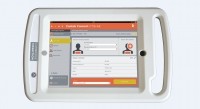iPad tool ‘can replace neuropsychologists’ in cognitive studies

Cambridge Cognition told Outsourcing-Pharma.com as well as eliminating the need for experts to administer cognitive assessments in early phase trials, the programmes also standardise results in multinational studies, yielding more accurate data.
The company created computer programmes to replace pen and paper questionnaires for research into cognitive control processes (the Clinical Trials Information System Adverse Effects or CTIS-AE), and abuse liability (CTIS-AL).
Adverse effects vs abuse liability
Drug makers measure cognitive processes – such as short-term memory and executive function – in medicines which can cause neurocognitive adverse effects, such as proprotein convertase inhibitors.
They also conduct abuse liability studies in part as a response to regulatory guidance requiring assessment of drugs with the potential to cause addiction.
In abuse liability trial typically a drug candidate is administered to volunteer recreational drug users who report whether it gives them a hedonic “high,” and how much they would pay for it on the street.
As well as opioid pain medicines, drugs commonly tested for abuse potential include stimulants and some novel types of antidepressants.
Standardising multi-country trials
The iPad tool automatically delivers instructions to patients, and captures and stores data without input from trial managers.
Trial participants respond by finger touch to questions and timed tasks which measure accuracy and reaction time more accurately than researchers using pen and paper, Cambridge Cognition’s Chief Scientific Officer told us.
Neurocognitive measurements usually require “a lot of manual labour and that’s completely removed with these products, said Andy Blackwell. “We have an e-learning package to train people at the site, so they don’t need to hire neuropsychologists to measure cognitive functions.”
Computerising the stimuli in cognitive tests standardises them across sites and countries, Blackwell added.
“Traditionally if I was giving the test I would read you 15 words and wait a while and ask you to read them back to me. It’s a very skilled thing to read them at the same rate, and they may not be in my first language.”
The product is delivered on a “medicalised” version of an iPad 5, which comes with a handle and a docking station. The tool is web-hosted and arrives pre-configured with participants’ IDs.
Blackwell told us the company is licensing the technology to both trial sponsors and contract researchers, has no plans for acquisition of the tool by a CRO.















